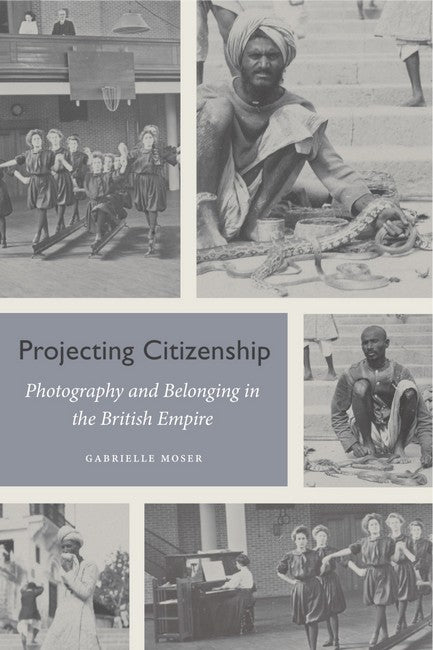''Projecting Citizenship contributes new thought and visual material to the field in a theoretically savvy manner and in dialogue with a number of theorists of photography and colonial projects. Moser lays out how colonial photography worked with other material to form a pedagogical mission to define imperial citizens.' This is a must-read not only for those interested in colonialism's use of photography in defining colonial subjects but also for those readers of photography and European imperialism who understand the intersubjective process as one fraught with anxieties, dangers, and promises but also containing the underpinnings of colonialism's eventual unmaking.''
- Stephen Sheehi, author of The Arab Imago: A Social History of Portrait Photography, 18601910
''Brilliantly elucidates the inner photographic workings of the fraught historical and cultural processes that are at work whenever we see, or think we see, images of citizens. Moser's book adds important historical nuance to the burgeoning literature on photography and citizenship, demonstrating that the scenes of precarious spectatorship that came to structure concepts and practices of citizenship across the British Empire were often first produced by photography. The book also makes bold new theoretical claims. Its explorations of the disobedient gazes, experiences of photographic latency, and paradoxical desires that we continue to inherit from colonial visuality promise to enrich ongoing debates.''
- Jennifer Bajorek, author of Counterfeit Capital: Poetic Labor and Revolutionary Irony

